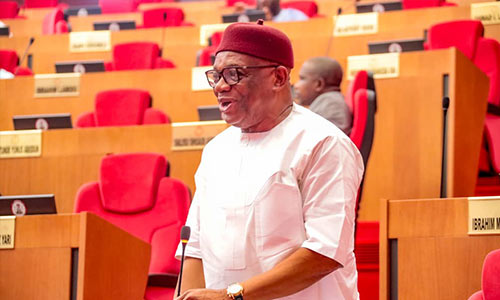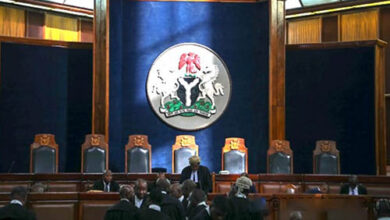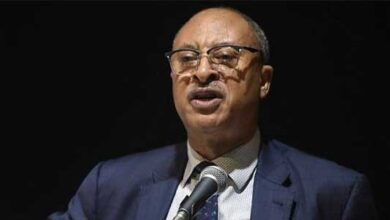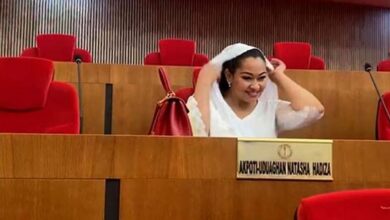“Political Class Behind Boko Haram” – Sen Kalu Accuses Elite Of Using Terrorism To Fight Tinubu

Senator Orji Uzor Kalu, former Governor of Abia State and current representative of Abia North in the Senate, has raised alarm over renewed insecurity in Nigeria, alleging that some members of the political elite are backing Boko Haram to destabilize President Bola Tinubu’s administration.
Speaking during an interview on Channels Television’s Politics Today on Monday, Kalu claimed the resurgence of Boko Haram is not just a security failure but a politically motivated plot aimed at weakening the Tinubu-led government.
“The political class is behind Boko Haram. They are using terrorism as a tool to fight Tinubu, just like they did with past administrations,” Kalu said.
Pressed further, Kalu accused some politicians, wealthy businesspeople, and top civil servants of orchestrating the violence, saying it is not just about money but about seizing power by destabilizing the country.
“People in the political class are the ones fueling Boko Haram. This is a political war. Some of them aren’t after money—they’re after power. They want to tear down the system just to grab control,” he said.
Kalu described the insecurity in Nigeria as deliberately induced by powerful individuals seeking to hijack political power, not merely for economic gain.
“The insecurity in Nigeria is politically induced. These individuals—politicians, businessmen, civil servants—are not just seeking financial gain. They’re looking to hijack political power,” he emphasized.
His comments came just a day after nine passengers were killed by Boko Haram insurgents in Mairari village, Guzamala Local Government Area of Borno State. The Speaker of the Borno State House of Assembly, Abdulkarim Lawan, described the attack as “inhumane” and urged the military to intensify efforts to reclaim territory held by insurgents.
On the state of the economy, Kalu said Nigeria’s financial situation cannot improve without borrowing from international sources. He noted that while many Nigerians criticize government borrowing, the economy would collapse without it.
“If this economy did not borrow, it would collapse, that’s the truth. The Committee on foreign debts and local debts used to scrutinise a lot, and I am not a member of that committee,” Kalu said.
He added that every loan or law approved by the National Assembly undergoes due legislative process.
“There’s no law made under the National Assembly that did not take its course,” he asserted.
Kalu also defended the relationship between the executive and the legislature, rejecting claims that the National Assembly is a rubber stamp for the presidency.
“What you people want to see is that we are fighting with the executive, but we are adults. For the interest of Nigerians, we have the mechanism to safeguard that fight. There are a lot of bills we sent back,” he explained.
Citing the example of the tax bill, he emphasized that legislative scrutiny is alive and well, even if it is not always visible to the public.
“We are mature; we don’t have to come telling you that we are fighting. You saw what happened in the tax bill—it took its course well. Actually, the day we passed the tax bill, I went to Akpabio’s house to congratulate him,” he said.
In another strong recommendation, Kalu urged President Tinubu to be bold enough to sack underperforming ministers and security chiefs, arguing that decisive action is necessary to deliver results for Nigerians.
“Some people working with President Tinubu should be relieved of their duties. Both from the security sector and among the ministers—some of them should go,” Kalu said.
“President Tinubu must be courageous enough to sack some of these ministers. I’ve appraised them and talked to him privately—most of them should go, and that is the truth,” he added.
Despite cabinet reshuffles—including the October 2024 removal of five ministers and reassignment of ten others—Kalu said many Nigerians still face hardship due to slow reforms and insecurity that continues to disrupt farming and economic activities.





